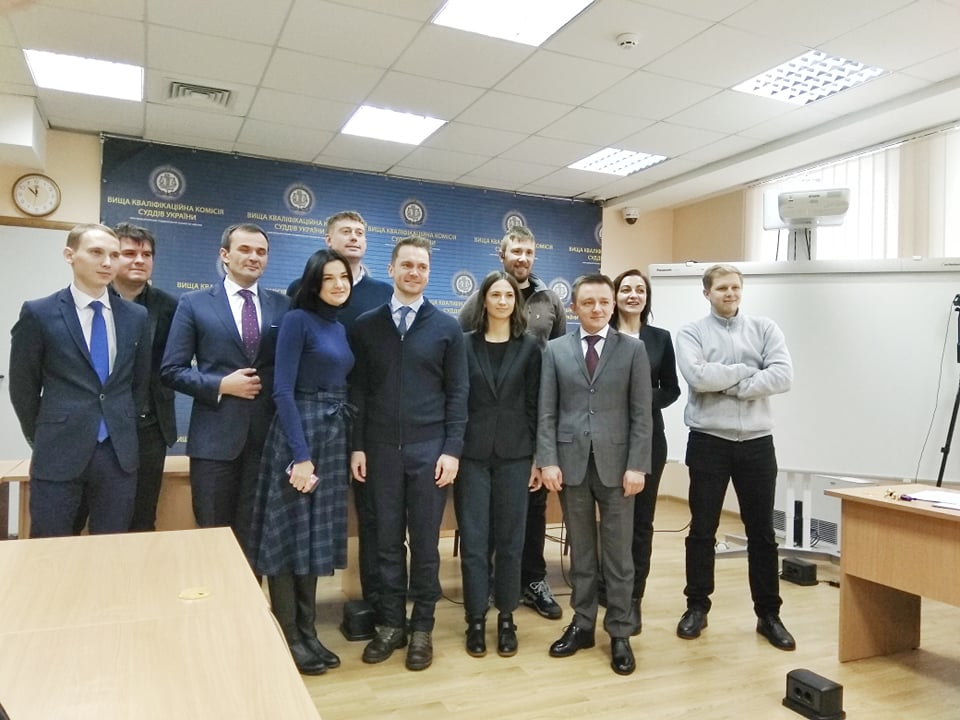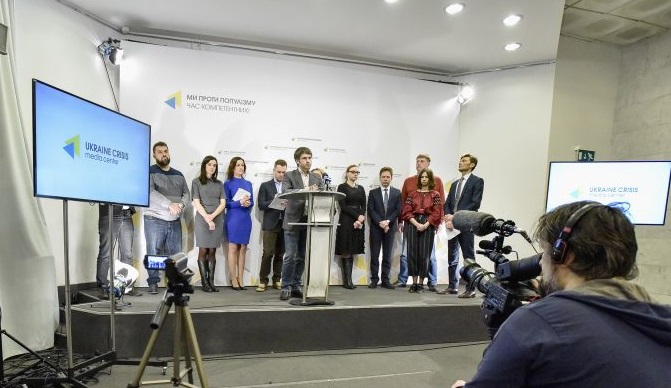During the Euromaidan revolution of 2013-2014, protesters pitting themselves against Yanukovych's repressive regime needed to evade not only the violent Berkut police which shot over a hundred unarmed people in the center of Kyiv. Hundreds of politically controlled judges acting as lapdogs of the regime beheaded the Automaidan "cavalry" of Euromaidan protesters, an association of car drivers who were at the frontline of Ukraine's civil protest, by arbitrarily depriving the activists of driving licences on made-up charges. Other judges prohibited peaceful gatherings on Euromaidan at the most active phase of the protests after receiving orders from the President's Administration, legitimizing a police crackdown. Yet another one gave the riot police the green light to break up the camp of the protesters, after which his service apartment was without any reason deprived of its state status, and gave him a profit of $1.1 mn after being privatized and sold. Acting as part of a unified repressive machine, these judges, ultimately, contributed to the bloody final of the protests.
After the victory of the Euromaidan revolution, civic activists launched initiatives to bring the offenders to justice, so that Ukraine would no longer have a politically controlled judiciary. The process has been an uphill struggle and is far from victory.
Over the last two years, only 34 judges who made unlawful decisions regarding Euromaidan activists had been dismissed. This is 10% from the total number of the 351 complaints filed to the High Council of Justice (HCJ). Another 29 judges are waiting for a final decision, Roman Maselko, lawyer, an activist of the NGO AutoMaidan, told at a press briefing at Ukraine Crisis Media Center.
“We are not certain that even those 34 judges who received a final decision on dismissal will leave their offices for good, because the final point in the dismissal of a judge is the order of the presiding judge,” he said.
Out of the 351 complaints it received, the HCJ issued orders to dismiss 64 judges. 31 were dismissed in 2016, only 3 - in 2017. The rest are awaiting a final judgement. The HCJ refused to open disciplinary proceedings against 204 judges. Proceedings were opened against 68 judges, but they weren't dismissed. 5 judges were temporarily suspended.
“We are talking solely about repressive decisions against activists, when there is every reason to say that it was not an administration of justice because decisions were made in a non-procedural way, systematically, and throughout Ukraine. The public urges the High Council of Justice to act as an arbiter who should ensure the purity of the judiciary rather than an advocate of the existing status quo. The presence of these judges in the judiciary makes it impossible to administer justice in the country,” stressed Tetiana Kozachenko, Chairman of the Public Council under the Lustration Department of the Ministry of Justice of Ukraine.
“If 90% of the judges who made unlawful decisions regarding Euromaidan participants are neither punished nor dismissed, this means that the authorities believe they did the right thing, that is, the Euromaidan participants were guilty and criminals. This gives reason to believe that if Euromaidan took place today, the judges would do the same,” emphasized Oleksandra Drik, Chairman at the NGO Public Lustration Committee.
She noted that this negative trend is also observed during all attempts to change the judiciary in general.
“It is critically important to follow what started immediately after Euromaidan to its logical end. If this is not done, it means returning to the situation in which Euromaidan started. We cannot let this happen,” emphasized Oleksandra Drik.
Read also:
- Here’s a hit parade of judges who might return the worst days of Ukrainian justice
- This is how Ukraine's old regime battles lustration
- Ukraine's judiciary reform: 5 things to know | #UAreforms
- Why did AutoMaidan become the frontline of Ukraine's civil protest?
- Ukrainian Berkut police suspected of Euromaidan massacre now in Russia’s service?





